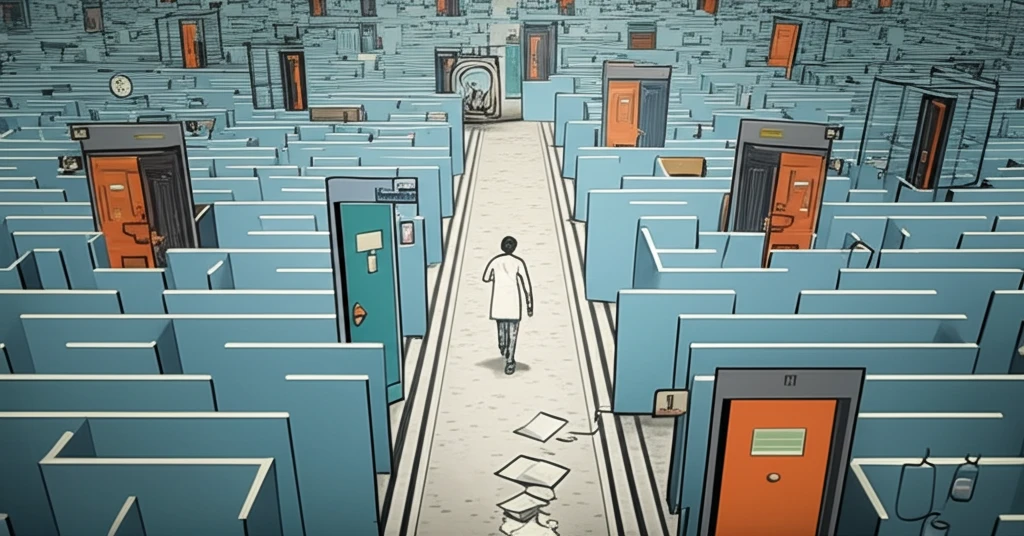
The Revolving Door: Why Continuity of Care Matters More Than Ever
"Navigating the challenges of fragmented healthcare in the modern NHS."
The National Health Service (NHS), since its inception, has strived to provide comprehensive healthcare to all. Debates about its future often revolve around finances and management, frequently overshadowing the patient's perspective. A stable, consistent approach to medical care is crucial, allowing healthcare professionals to understand the patient's history, build trust, and make well-informed decisions.
However, a growing concern is the lack of continuity of care, where patients encounter a revolving door of different doctors and specialists. This fragmentation undermines the quality of care, erodes patient confidence, and ultimately affects health outcomes. The experience of one physician, detailed in a letter to the BMJ, illustrates this growing problem within the NHS, highlighting the frustrations and potential dangers of a system that prioritizes efficiency over personalized care.
This article examines the importance of continuity of care, dissects the issues contributing to its decline, and offers insights for both patients and healthcare providers on how to navigate and improve the current system.
The Fragmented Reality: Losing the Personal Touch in Healthcare

The core issue lies in the increasingly fragmented nature of healthcare. Patients often find themselves shuffled between numerous healthcare professionals, each with limited knowledge of their overall medical history. This is vividly illustrated by the physician's account of being seen by 17 different registrars without a single reassessment by a consultant. Such experiences are not only frustrating but can also lead to critical oversights in treatment and care.
- Lack of Holistic Understanding: Each new healthcare provider only sees a snapshot of the patient's health, missing the long-term trends and subtle nuances that are crucial for accurate diagnoses and effective treatment.
- Erosion of Trust: The constant change in personnel makes it difficult for patients to build trust and rapport with their healthcare providers. This can lead to patients feeling unheard and misunderstood, impacting their willingness to adhere to treatment plans.
- Increased Risk of Medical Errors: Without a consistent overview of the patient's medical history, the risk of errors such as conflicting prescriptions or missed allergies significantly increases.
- Inefficient Care: Redundant tests and consultations become common as each new doctor requires the patient to repeat their story and undergo similar evaluations, wasting time and resources.
Rebuilding Continuity: A Path Forward
Restoring continuity of care requires a multi-faceted approach involving healthcare providers, policymakers, and patients themselves. Healthcare systems must prioritize building structures that foster long-term doctor-patient relationships. This includes promoting team-based care models, improving communication and coordination among healthcare professionals, and implementing technology solutions that provide a holistic view of the patient's medical history. By addressing these challenges, we can pave the way for a healthcare system that values both efficiency and personalized care, ultimately leading to better health outcomes and improved patient satisfaction.
